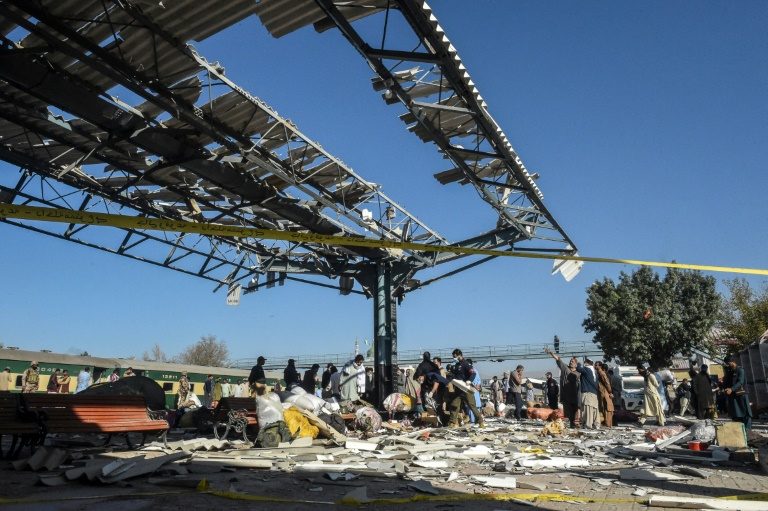
By Ghulam Hussain
QUETTA: A banned militant organization has claimed responsibility for the recent attack, intensifying concerns over public security in an already volatile region. The incident has sent shockwaves through the community, highlighting the persistent vulnerabilities within Balochistan’s security framework. The assault on a major transportation hub underscores the militants’ ability to exploit soft targets, reigniting calls for more robust countermeasures to safeguard public spaces and protect civilians.
In response to the tragedy, both federal and provincial authorities are now under pressure to reevaluate and strengthen security protocols across key transit locations and public areas throughout the region. The provincial government, alongside federal security agencies, has been called upon to bolster intelligence-gathering efforts and increase the presence of law enforcement in high-risk zones. Authorities are considering the implementation of advanced surveillance systems, stricter entry checks, and enhanced coordination between local and federal security units to prevent such attacks from recurring.
Public frustration and fear are palpable, as many feel increasingly vulnerable amid escalating violence. The attack has also revived discussions on the need for comprehensive counter-terrorism strategies that address the root causes of militancy in Balochistan. Enhanced security measures are seen as essential in restoring confidence and preventing future attacks, but there are also calls for deeper socio-economic investments to address longstanding issues of poverty, marginalization, and political grievances that often contribute to instability in the region.



